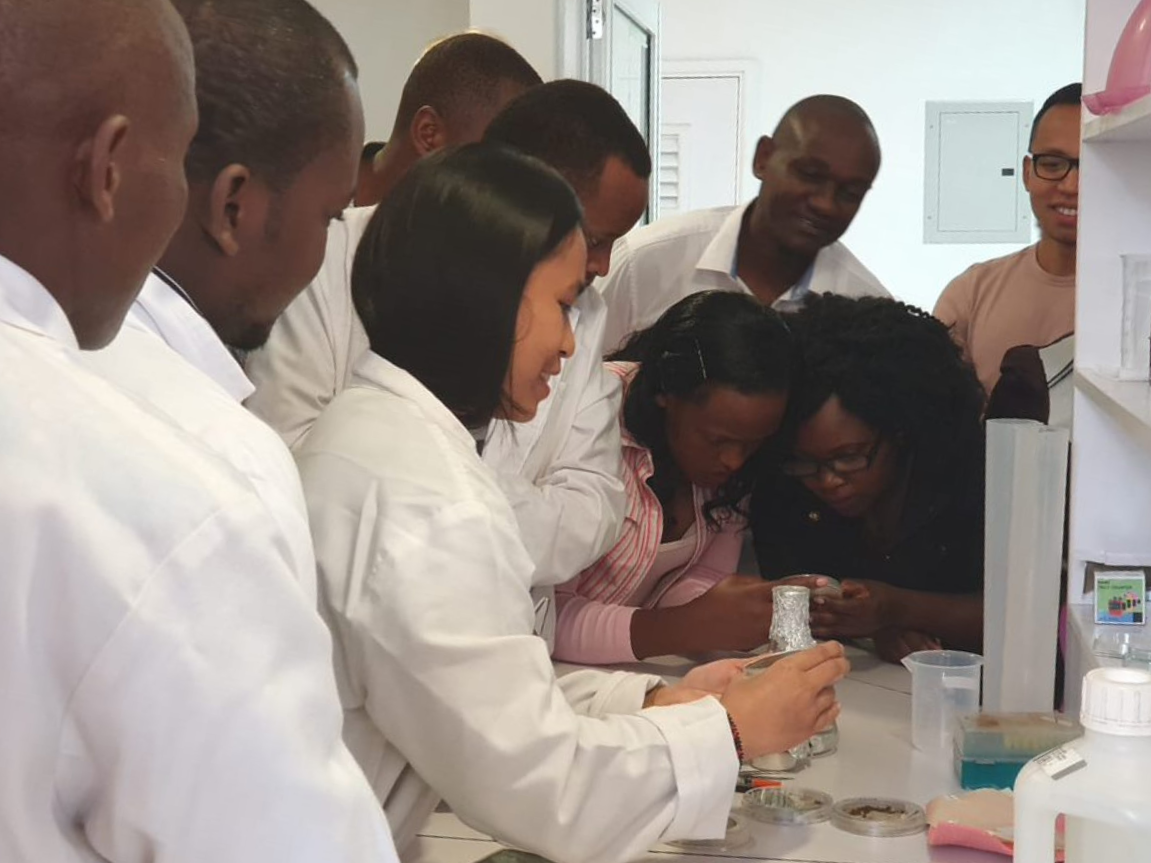With the change of the seasons, we are excited to launch a new ITP Call.
With an ITP project, training courses can be organised for professionals from civil society, private or public sector and/or academics, scientists, and researchers at higher education institutions.
These trainings are short- to medium-term, intensive, interactive and practice-oriented. They are distinguished by topic, dealing with sustainable development, transversal skills for Higher Education (HE) management, transversal or priority themes (e.g. gender, sustainable development, human rights, digital 4 development, decent work, etc).
New!
To better adapt to the needs of our partners, and to fit ITP in the new Five Year Programme 2022-2027, we changed some aspects of the ITP format. Discover below how this affects your project proposal.
ITPs have now become projects, which means they now follow a project logic with a focus on capacity building by funding short-term training. A new feature is that activities in preparation of, during, and in the follow-up of the training can be funded as well.
Furthermore, there is no fixed format anymore as to where and how to organise the training: ITPs can either be organised at a Flemish higher education institution, or in one of the 17 partner countries. Either online, in person, or with a hybrid format.
What’s more, several editions of training modules can be implemented during a project implementation period of 3 years maximum, benefitting at least 8 scholars.
The ITP project logic accommodates a maximum requestable budget of EUR 150,000, combining the training and scholars’ costs.

Need inspiration?
We asked our partners to provide ITP ideas. This way, an ITP can collaborate with the respective partner and be an additional valuable partner. These are some examples:
- E-learning for entrepreneurial organisations in the global south
Topic: e-learning
JSF: Trias vzw
Description: Trias supports entrepreneurial organisations in the global south. E-learning is part of the activities, though its still in an early stage in which we have developed an entrepreneurial skills trainings for small-scale farmers, currently used in Uganda.
Further ideas on developing more e-learning modules include: leadership modules, entrepreneurial competencies trainings (using a tool named Cefe). These are all existing trainings that we want to digitalise, to ensure continuation of trainings, in case of for example pandemics like Covid-19.
Target group: Small scale entrepreneurs and leaders of member-based organisations in the global south (supported by Trias)
Contact: Rogier Huijmans, rogier.huijmans@trias.be
- Molecular Sequencing: Fighting Malaria Across Borders
Topic: Mobilise young academics: transversal skill development through practice orientated midterm courses
JSF: Institute of Tropical Medicine
Description: Together with our collaborating partners, we wish to implement molecular surveillance tools for P. falciparum and P. vivax in National Malaria Control Programs that aim for the eradication of disease. Through training in laboratory- and bioinformatic skills, students and young scientist become familiar with molecular surveillance as a crucial activity to monitor transmission routes, sources of epidemics and the emergence and spread of drug resistant mutations. It would include courses at ITM and implementation in their country of origin, enabling a true exchange of knowledge from which both partners can learn.
Target Group: Young academics from malaria-endemic regions, to improve multilateral cooperation and capacity building between- and within the regions (Sub-Sahara and Central Africa; Latin-America; South East-Asia)
Contact: Mathijs Mutsaers, mmutsaers@itg.be
- Digitizing civil society programs in the Philippines
Topic: Digital 4 development
JSF: Solidagro & Viva Salud
Description:Digitizing of program management is still a weakness and a challenge for Philippine partners. There is a need to have additional skills and knowledge, for example on data collection, collation, data banking, and analysis for project monitoring. Improvements on this weakness will also benefit the documentation and best practices developed in the project areas. A well developed and implemented ITP project can be helpful in tackling this challenge.
Target group: Staff of NGO partners in the Philippines. Partners of other Belgian NGOs can be invited to join as well.
Contact: Pascal Van Driessche, pascal.vandriessche@solidagro.be
FAQ
To make it easier for all parties involved to find the information you need, we have bundled the most necessary information and formulated it in the form of questions.
If the question you have is not answered below, you can always consult the comprehensive ITP Call document. Of course, the VLIR-UOS team is there for you if you have additional questions. March 30, we are organizing an information session about this call. Read about it here.
Please don’t hesitate to contact us by email: ise.desmet@vliruos.be
Happy writing!

